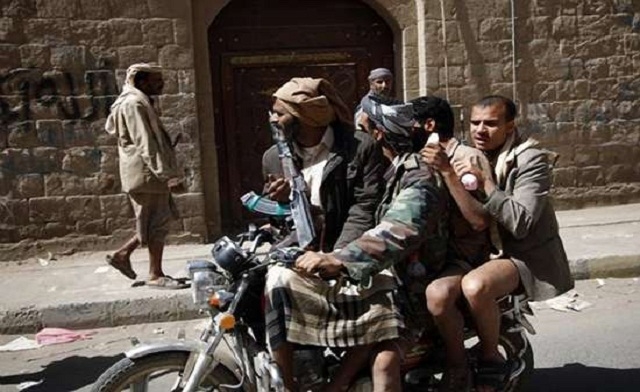 Photo: ReutersGregory Johnsen writes for Foreign Policy:
Photo: ReutersGregory Johnsen writes for Foreign Policy:
In the final presidential debate, more than 11 years after the Bush administration launched its global war on terror, President Barack Obama identified "terrorist networks" as the gravest national security threat facing America. But Yemen, which is home to the most dangerous al Qaeda affiliate, has attracted precious little attention from either of the candidates in this election. In the recent foreign-policy debate, for instance, Yemen was mentioned only once; compare that to Iran, which was name-dropped 47 times.
In many ways, Yemen has become this war's laboratory, a place where the United States can test new ways to fight al Qaeda. In December 2009, Obama opened the campaign with a strike on what U.S. military planners believed was an al Qaeda training camp in southern Yemen. The cruise missiles equipped with cluster bombs hit their target, killing 55 people in minutes of bombing. But instead of the al Qaeda camp the United States thought it was hitting, it had bombed a Bedouin village where some al Qaeda fighters were staying. Just over a week later, on Christmas Day 2009, a would-be suicide bomber dispatched by al Qaeda in the Arabian Peninsula (AQAP) attempted to bring down Northwest Airlines Flight 253 over Detroit.
In the three years since, AQAP has repeatedly tried to strike the United States -=- with a pair of parcel bombs in 2010 and another underwear bomb that was uncovered in early 2012 --- while the United States has responded with ramped-up drone and air strikes along with increased economic aid to the central government in Sanaa. AQAP has also been active on the ground, briefly taking over and administering a number of towns in the southern part Yemen that had drifted beyond government control during the 2011 uprising that forced President Ali Abdullah Saleh to step down from power in exchange for immunity.
With covert military backing --- and the most generous aid package ever from Washington --- the Yemeni military has managed to regain much of the territory it had lost. But it did not defeat al Qaeda. The fighters were not arrested and they were not killed; they simply faded back toward the mountains where they have been living and plotting for years.
If U.S. assistance pulled Yemen back from the brink this time around, it's only because the United States' love-hate relationship with Sanaa has allowed al Qaeda to regroup time and again as Washington trained its sights elsewhere. Indeed, the story of al Qaeda's stubborn persistence in Yemen's tribal hinterlands is the story of Washington's tortured relationship with Saleh --- and its attempt to make up for past mistakes by bolstering former vice president Abd Rabbu Mansour Hadi, who has taken over in his stead, with aid.